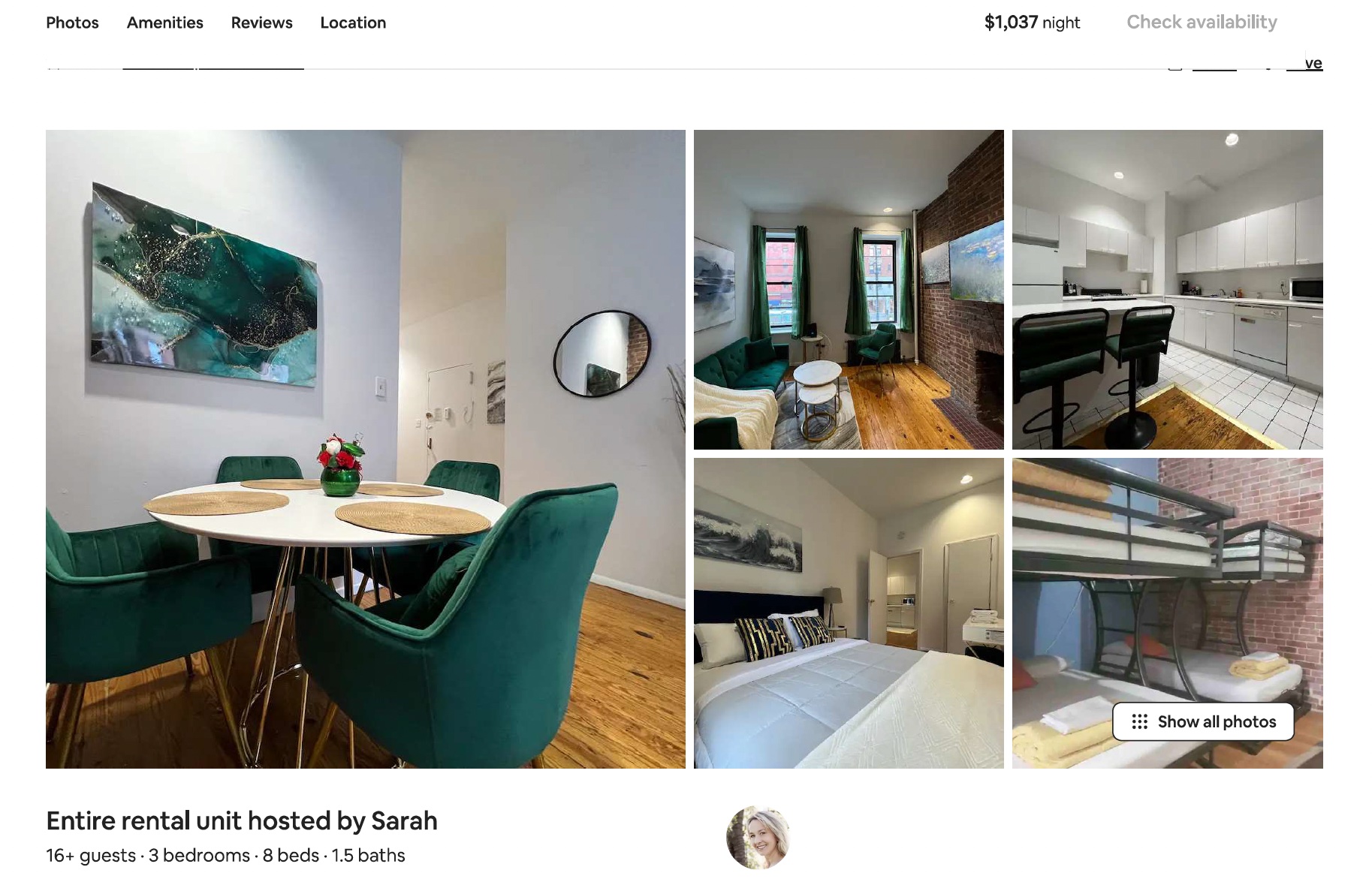Skift Take
Things are heating up between landlords, tenants and Airbnb as Local Law 18 kicks into gear. You can expect a lot more of these types of lawsuits.
A New York City building owner filed a legal motion Monday asking that Airbnb and a host show why they should not be held in contempt of court for allegedly violating a temporary restraining order related to a short-term rental listing.
Plaintiff Columbus 69th LLC, the building owner, asked the judge to impose penalties for the alleged violation. A hearing is scheduled for October 30 in a New York State court.
The owner had placed the building on the city’s so-called banned building list, which blocks short-term rentals. The owner had gotten a temporary restraining order against the host and Airbnb.
But the contempt motion, filed by attorney Michael Pensabene of Rosenberg & Estis, alleges that guests were spotted in the apartment on October 17, and that the listing was still on Airbnb and advertising for future bookings. The court papers stated that the guests said they booked the apartment on October 15.
The apartment can accommodate 16+ guests, has three bedrooms, eight beds and 1.5 baths, and goes for $1,037 per night, according to a photo in the court documents.
“As Defendants have willfully disregarded and ignored the TRO [Temporary Restraining Order], this Court must hold them accountable for their unlawful actions,” the motion stated. “Defendants have taken no efforts to comply with the TRO and are clearly in contempt of Court by allowing the transient activity at the Premises to continue,” the plaintiff alleged.
Nathan Rotman, Public Policy Regional Lead for Airbnb, said “Airbnb is working closely with the OSE as it implements the new registration law,” referring to New York City’s Office of Special Enforcement.
Local Law 18 Required Airbnb Hosts and Others to Register With NYC
The lawsuit grows out New York City’s Local Law 18, which requires eligible hosts to register with the city. However, hosts would have to be present in the apartment during the stay and can’t accommodate more than two guests, among other rules.
The plaintiff noted that, as a building owner, it is facing numerous fines from the city because of the defendants’ short-term rental activity. The plaintiff added that short-term rental activity in the building is a safety hazard and that numerous building residents have complained about guests.
The plaintiff is seeking civil and criminal penalties against Airbnb and the tenant for allegedly violating the temporary restraining order, and is also seeking a permanent restraining order.
“Defendants’ actions are the absolute epitome of contempt and must be recognized as such,” the contempt motion states.
Dwell Newsletter
Get breaking news, analysis and data from the week’s most important stories about short-term rentals, vacation rentals, housing, and real estate.
Have a confidential tip for Skift? Get in touch
Tags: airbnb
Photo credit: This is an allegedly illegal listing for 207 Columbus Avenue in New York City, according to a lawsuit against Airbnb and a tenant/host.
